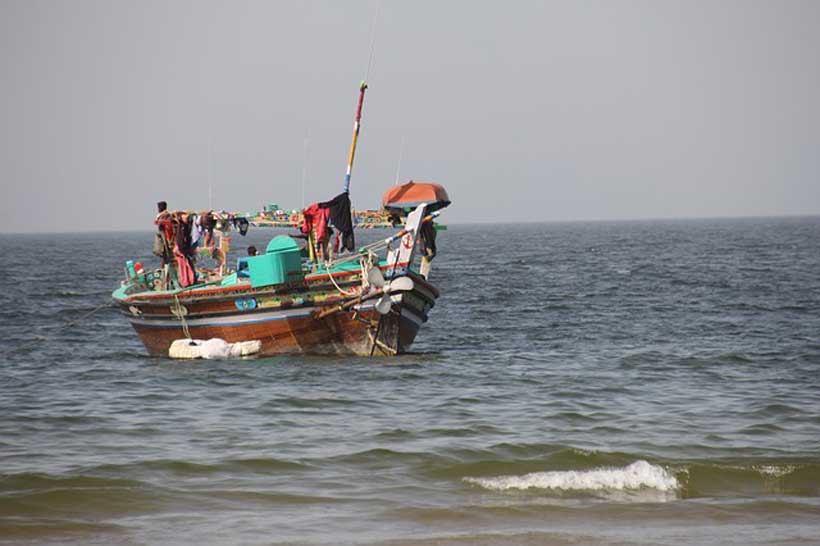Their identity is curse and faith an enormity. They live under the specter of death and fear of attack hovers over them all the time. Hazara Community of Balochistan always remains in the line of fire. The small community is living in the suburbs of Quetta in the congested and securitized towns. They are victims of systemic persecution and fall prey to power politics of sectarianism which entrenched in the beautiful land of Balochistan. Quetta city once known as Little Paris owing to its enchanting topography, pluralistic society and ethnic diversity. It was a society where everyone was embraced without any discrimination of any shape and kind. But now the city is notorious for target killings, bomb blasts, and sectarian violence.
In recent deadly attack, more than 20 people perished and half of them were member of hazara community. The mourning families, crying children, weeping aged men and women belie the claim of successive governments that the backbone of terrorists is broken. The community is protesting on the roads once again likewise 2013. The twin attacks in 2013 in which more than 200 people of same community lost their lives and left scores injured and handicapped. The tentative measures were taken and hollow promises were made to the enraged protesters but the attacks continued unabated. However, there was respite in the attacks when it was promised to Jalila Haider, a protesting girls who was on hunger strike, but another attached heaped trauma on the community.
The heart wrenching stories of their target killings and genocide are centuries old. The Afghan King Ameer Abdul Rehman ordained to kill thousands of Hazaras in 20th century. The dead body carrying mules were seen on the streets of Kabul. This crisis stricken community fled to Iran and Pakistan hiding from the ire of faith. This did not end their agony and morphed in to sectarian war. The bloody sectarian divide wreaked havoc on the community and their ordeal continued. Many ideas were crushed, dreams shattered and hopes slaughtered at the altar of “which sect is righteous.” Hazara community fallen prey to the bullets of religious zealots when there was bloodshed in the country in the name of sect. In 1980s, the structural and theocratic shifts at international level had direct drastic impacts on Pakistan. In the internecine cold war between two rivals Saudi Arabia and Iran the people of Pakistan were butchered. No single street, road remained clean from the blood of innocents. In Quetta due to deteriorated law and order situation, less check and balance of authorities sectarian monsters found an easy place to grow any carry on their activity. In 1990s and 2000s the attacks were intensified on the beleaguered community. Not only in city they remain an easy target but in many occasion the hazara pilgrims were offloaded from buses and shoot dead. In the densely populated city the assailants used to disappear very quickly. This tiny community remains an easy target because of their Mongolian physical features. No child, women, girls and peer is left unhurt. Furthermore, the business community was main target. Due to perennial attacks the economic activity of the province nosedived. Other business community terrified and this group only remained confined to their compounds living lives of inmates. Most of the families fled from Quetta to other cities and out of country.
The Balochistan government realizing the ramifications of such gruesome incidents seems clueless how to hold the bull of sectarianism by its horns. A milestone achievement of central government was National Action Plan (NAP) in aftermath of Peshawar carnage promised to root out scourge of terrorism from the country. It was vowed that strict measures will be taken against hatred spreading clerics and literature, financing system will be choked and recruiting system eliminated but still in paper work. In Quetta, the safe city project raised few hopes but the ineptitude of government and no crystal clear direction never allowed this plan to be materialized. The security personnel escorting the buses of Hazaras make them more susceptible to any attack. The government has to take pragmatic kinetic and non-kinetic measures to bring sustainable peace in the country.
In kinetic measures a task force constituted by police department can be deployed for the security of Hazaras. The indiscriminate operation in the whole city and its suburb areas: Sariab Road, Kharotabad and airport road area. In Quetta various madressahs are operating without vigilance of government which need to be monitored. Lashkar-i-Jhangvi has a robust infrastructure in Quetta which can be dismantled by the collaborative operation of Army and police. Border security of the province is so fragile that it is very easy to cross bodoer.
In non-kinetic measures, there is dire need of vigorous campaign in the province to propagate the religious tolerance. Mostly the data in social media spew hatred against the sects. The cyber cell needed to filter the posts on social media. A composite Ulema symposium on religious tolerance can issue decree declaring unlawful and un-Islamic killing of the other sects. The growing antagonism and intolerance in the society against the sects has created polarization which has its own negative consequences.
The atmosphere of distrust and indignation must cease in the city. The people of Balochistan suffered a lot at the hand of violence. The bloodshed has incurred gargantuan economic loss to the cash trapped provincial government. The mass exodus of people from the city is also brain drain. Many Hazaras has fled to other cities and countries creating a vacuum of talent and economic growth. Hopefully, In the Naya Pakistan of Imran Khan the justice will be delivered.


